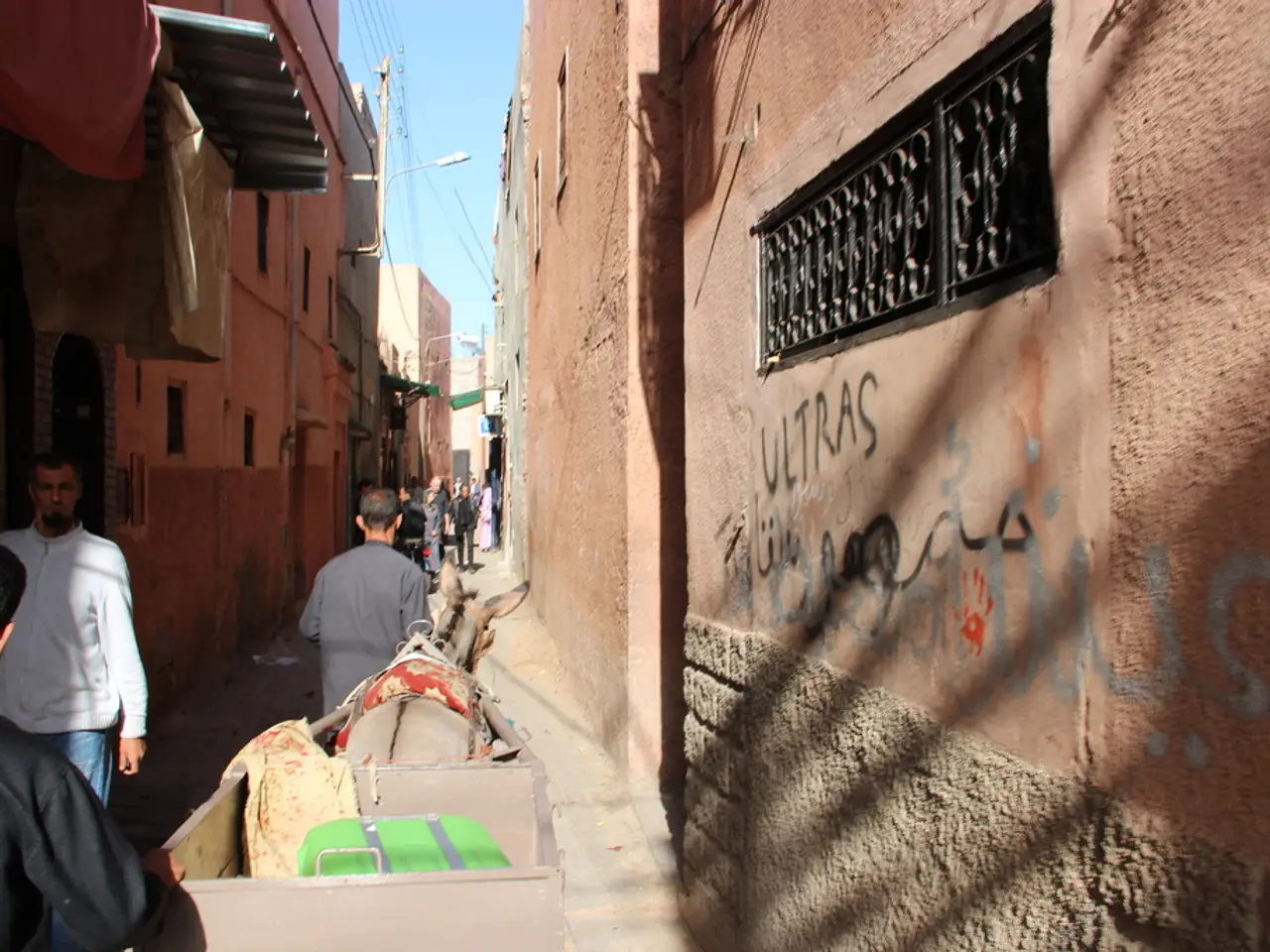International pressure for a Palestinian state intensifies, yet its establishment remains elusive
In the mid-year of 2025, the proposed Palestinian state has gained significant recognition from various countries, with over 140 UN member states recognizing Palestine as a sovereign state. This growing international support is seen as both symbolic and practical, enabling formal diplomatic and economic relations.
France announced in July 2025 its intent to recognize Palestinian statehood at the UN General Assembly. This move is expected to be followed by other countries, as several nations, including China, the UK, San Marino, and the UAE, have advocated active support and recognition for Palestine.
China maintains its support through humanitarian aid and has facilitated intra-Palestinian reconciliation efforts, aiming to build the foundation for a viable Palestinian state. The UK has restored funding to UNRWA, imposed sanctions on violent settlers and far-right Israeli ministers, and suspended trade negotiations with Israel, all actions in support of Palestinian rights and statehood.
The UAE advocates for a binding roadmap to establish an independent Palestinian state, emphasizing the urgency of political courage for peace. San Marino plans to recognize Palestine by the end of 2025, viewing it as a principled stance rather than just symbolic.
Canada has also announced its intention to recognize a Palestinian state, joining France and the United Kingdom in calling for a Palestinian state. These moves have left Washington increasingly isolated over its backing for Israel.
However, the Israeli government has rejected these calls, describing them as tantamount to rewarding terrorism. Israeli Prime Minister Benjamin Netanyahu has stated that a Palestinian state would be used as a launch pad to annihilate Israel. Some members of Netanyahu's cabinet are hard-line and refuse to consider an independent Palestinian state.
The Palestinian Authority, which governs parts of the West Bank, is distrusted by many Palestinians. A modern Palestinian state has never existed before, and the closest to what a future Palestinian state may look like was hashed out in the Oslo Accords of the 1990s, which envisaged a Palestinian state based on Israel's 1967 borders.
Despite these challenges, Palestinians have welcomed the announcements as a boost for their cause. The increased international pressure on Israel, particularly from former allies, may disadvantage Israel in its ongoing conflict with the Palestinians. US President Donald Trump seems increasingly frustrated with Israeli Prime Minister Benjamin Netanyahu, with Trump wanting regional peace and a Nobel Peace Prize for making it happen. However, Trump's efforts to normalize relations between Israel and Saudi Arabia have been met with resistance, as Riyadh has been firm that this cannot happen without an irreversible path to a Palestinian state.
- The policy-and-legislation of recognizing the Palestinian state is gaining momentum, with France, the United Kingdom, Canada, and potentially more countries following suit at the UN General Assembly.
- The migration of political support for the Palestinian cause is evident, as various countries, such as China, the UAE, and San Marino, have actively advocated for a Palestinian state.
- general-news outlets are reporting that the war-and-conflicts between Israel and the Palestinians could be affected by this accelerating politics of recognizing a Palestinian state, with increased international pressure potentially disadvantage Israel in the ongoing conflict.








